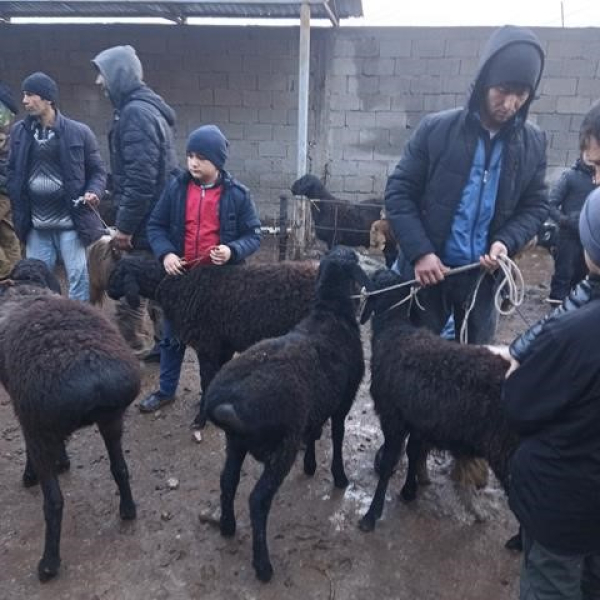News
Scoping and design for One Health surveillance in Central Asia

Prime has been contracted to conduct a scoping and design exercise for a One Health surveillance framework covering several Central Asia countries.
Image right: Livestock market in Dushanbe, Tajikistan. Photo credit: Dr Eric Neumann.
The framework will apply to Kazakhstan, Kyrgyzstan, Tajikistan, Turkmenistan and Uzbekistan and is being developed by Prime in partnership with Alinea International, an international development consultancy based in Canada, on behalf of the World Bank.
Prime consultant Dr Eric Neumann is Technical Team Leader for the framework’s delivery, working in collaboration with key experts Dr David Angelson (Human Health Surveillance/Environmental Health), Dr Kevin Crews (Animal Health Surveillance), Dr Anna Vasylenko (Food Safety), Dr Anne Deckert (Anti-Microbial Resistance and Mr Anton van Engelen (Regional Livestock Industry Expert).
Dr Brian Bedard, Alinea’s Director for Food Safety and Animal Health, and Dr Alan Pearson, Prime’s Group Chairman, are providing peer review and backstopping technical support.
The exercise involves country visits, review of existing documents and data and development of recommendations on system improvements to provide better early warning of emerging threats to human, animal and environmental health across the five target countries.
Specialising in disease management, biosecurity policy, livestock production and global trade in animals and animal products, with a Doctor of Veterinary Medicine and PhD in Veterinary Epidemiology, Dr Neumann is well-placed to lead the technical aspects of this work.
He has delivered One Health training and capacity building around the world, including in East, South-East and South Asia.
“The objective of this assignment to formulate recommendations for priority investments in national and regional surveillance systems that would contribute to pandemic prevention and preparedness, prevention and control of zoonoses (diseases of animals transmissible to humans), Antimicrobial Resistance (AMR) and food safety,” says Dr Pearson.
“Our recommendations will be based on an assessment of current surveillance systems – and agreed upon with government counterparts in the agriculture, environment and health sectors of Kazakhstan, Kyrgyz Republic, Tajikistan, Turkmenistan and Uzbekistan.”
One Health is an approach to designing and implementing programmes, policies, legislation and research in which multiple sectors (livestock, wildlife, public health and environment) communicate and work together to achieve better public health outcomes.
The approach recognises that health issues at the human-animal-environment interface cannot be tackled by one sector alone; rather, they need addressing at global, regional, national and sub-national levels.
The COVID-19 global pandemic has highlighted the importance of this work, as the SARS-COV-2 virus that causes the disease is thought to have originated in wildlife.
This surveillance framework recommendations are due for completion in August 2023. This is one of five related work packages commissioned by the World Bank on One Health investments for the region.



